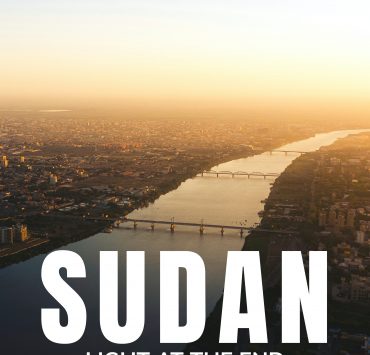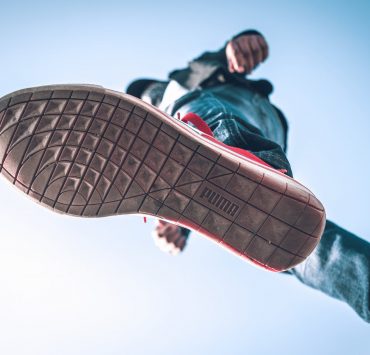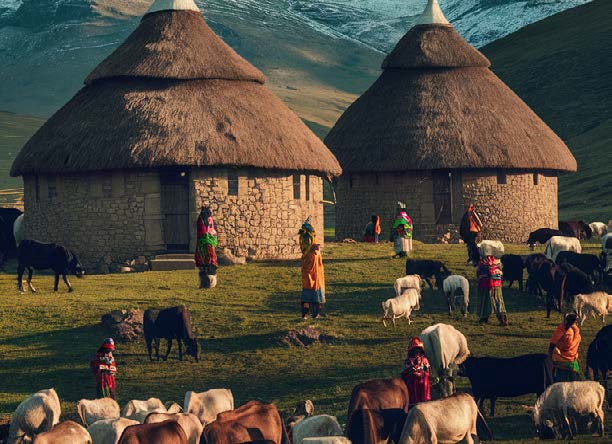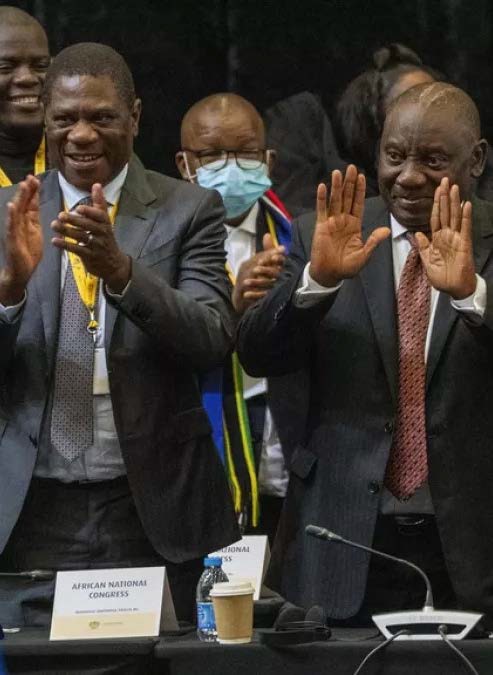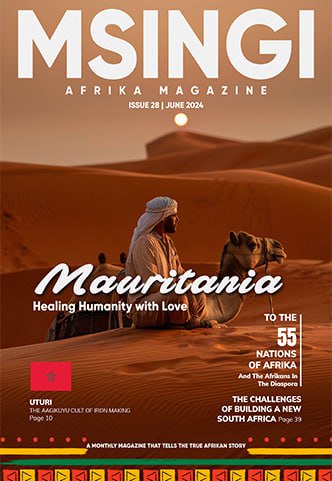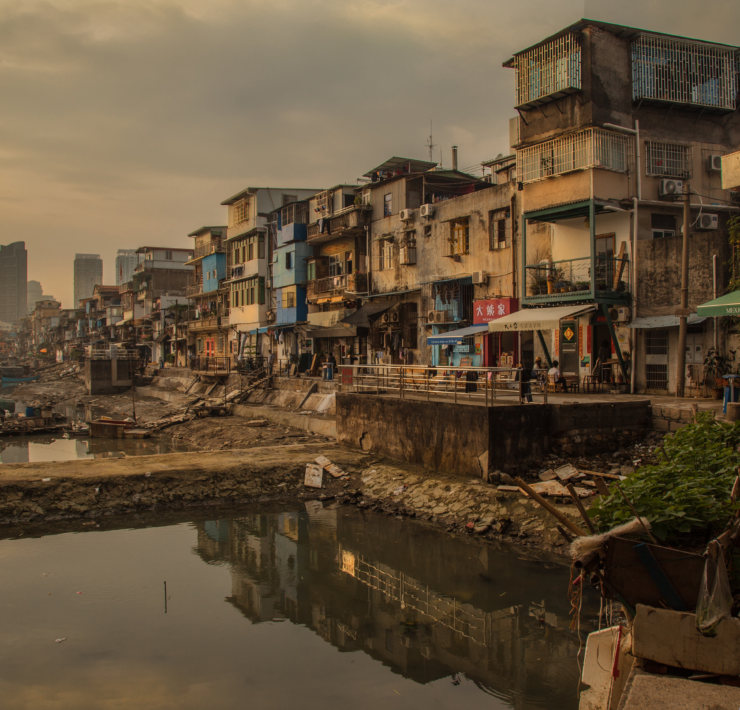Poverty in Afrika is a multi billion dollar business
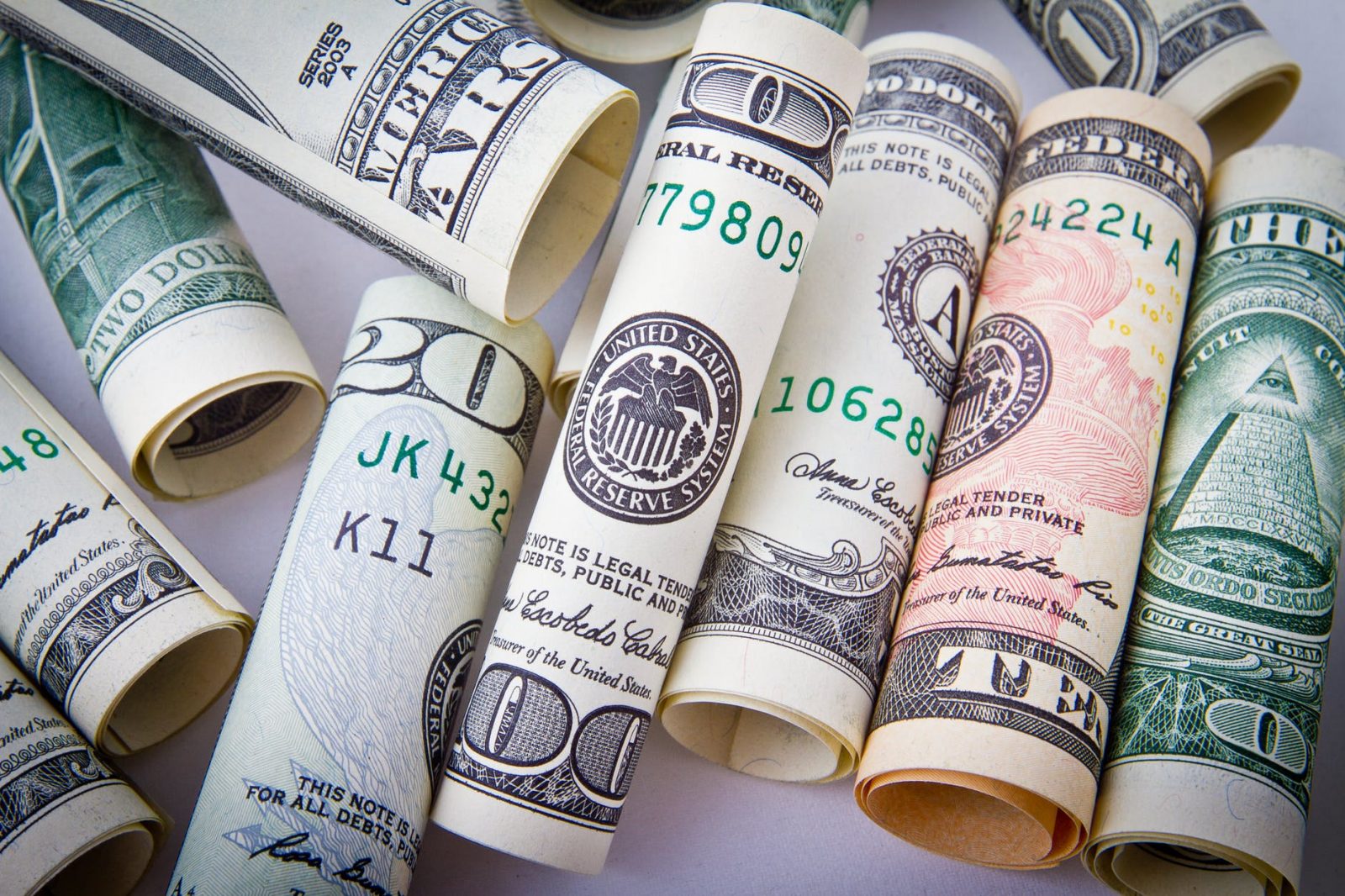
Samuel Phillips is a writer, graphic designer, photographer, songwriter, singer…
Have you ever wondered why it looks as if poverty in Afrika cannot be removed? Have you wondered why with all the foreign interventions in Afrika, and all the billions of dollars sent in to do poverty alleviation programs, nothing seems to change? Have you wondered why it is that the major narrative you hear about Afrika on the media is either violence or poverty and the many other negative things that they push as news? Or have you thought about why it is that with all the millions of high level intelligent and innovative Afrikans we have, a large percentage of Afrikans still cannot make ends meet, and they still deal with lack and poverty daily? Here is what I believe is the problem. Poverty in Afrika is a created and well-funded “brand”. Poverty in Afrika is business. Yes, you heard me. Poverty in Afrika is a multi-billion-dollar business that uses the corruption, inaction and ignorance of some Afrikans as offices and business spaces for the huge enterprise and it’s majorly controlled from outside of Afrika.
Imagine such irony that poverty is a multi-billion-dollar business. But that is what it is. Poverty is a brand just as the term white race and black race are brands and not necessarily skin colors. “Black” is a brand that they make to signify inferiority while the term “white” is also not a skin color but a brand that they made to speak of superiority. It’s as simple as that really. And just as every brand is owned by a businessman or investor, poverty in Afrika is also owned and controlled by those who profit from its multi-billion-dollar turnover. And to tell you the truth, these controllers are the very multi-national corporations and investors you would probably love to have invest in your business.
For some time now, my wife and I have been having some chats and conversations with friends that are involved or were involved with NGOs locally. The narrative seems to be the same. Money is brought in for local community intervention but almost ninety percent of the entire funding is used for paying the staff of the NGO (mostly the foreign ones), buying high end cars, paying rent for high end apartments for the so-called experts and huge amounts of money paid to foreign consultants for local issues. At the end of the day, the so-called foreign investment for interventions for local communities is nothing but a grand money laundering scheme that has no benefit for the locals, but largely benefits the pockets of those who own poverty as a brand and as a business.
I will give you two quick instances that convinced me of the fact that poverty in Afrika was created as business for those who profit from it and also as a brand to constantly undermine the Afrikan people. One, my wife and a sister of ours were having lunch at our sister’s house a very short while ago. She had invited a family friend of hers who just resigned from working for an NGO here in Kenya. As we had lunch, the topic of poverty in Afrika amidst all the foreign interventions came up and he told us a very telling story of what really happens with foreign NGOs in Afrika. He mentioned how, while his former organization was having a send-off party for him, his former boss came in looking quite worried. He asked what was the issue and the boss went on to tell him that he was having a problem knowing what to do with the remainder of the budget that was assigned to their organization. We are talking of 4 million Kenyan Shillings. That’s about 35,000USD. That was the first time I heard about the kind of money that exchanges hands in NGOs. In my curiosity, I asked why it was that the boss was worried if there was extra money from their budget. He then went ahead and said that, since the money comes from donor funding, they cannot return it unused, so the money must be spent and put in record that it was used. And that is irrespective of whatever they use it for and how they use it. It just has to be used. For a few minutes I tried reasoning with myself about what he was talking about. At this point, our sister who around that same time, was also tendering her resignation from a foreign NGO in Kenya, confirmed what the guy was saying. So, basically, as insiders of NGOs or former insiders, they understand the dynamics about how NGOs are basically about money exchanging hands.
Two, I read on Facebook a while ago about a Kenyan son of immigrants who discovered how to process hyacinth for making good money and wanted to create a community solution from the use of hyacinth for the youths in the Lake Victoria region of Kenya. His intention was to teach the youths how to do it so they can be self-reliant. Shortly, he received a call from stranger who told him he would be deported to his parents’ country of origin if he went on with his plan to create that community solution for the youths of that region. He asked why should creating a solution for the youth be a problem? He was told, if he shows the youth how to make money, then the donor funding they were getting for that region would no longer continue. Fearing for his life, he had to stop.
Now, looking at both stories I just shared, does it show you why the issue of poverty in Afrika is not because Afrikans cannot create wealth nor is it because we do not have what to create the wealth with, but because poverty in Afrika is business and a brand that keeps donor funding, exchange of money, money laundering and the likes going on. And mind you, I am not saying that NGO,s both foreign or local, are evil or that their works are not appreciated. Not at all. All I am saying is that, if these organizations and the many foreign and local interventions they claim they provide are actually effective for the Afrikan people, how come the problems facing the Afrikan people never really go away? Also, from the first story of the worried boss, do you think that particular NGO will offer a real solution to their community? I don’t think so. But why? To offer a real solution to the problem of the community would simply stop the donor funding. These in themselves are some of the reasons why Afrika is poor and not the inability of Afrikans to create wealth. For if it is about the inability of Afrikans to create wealth, how come there are Afrikans all over the world creating wealth?
A while back, our good friend father Anselm Adodo from Nigeria wrote an article that we published in this magazine. The title of the article is The World’s Wealthiest Poor Continent. His article points out something very interesting. We have too many systems, government policies, corporations, organizations etc. in Afrika who are “brand ambassadors” for this wicked poverty brand, more than we have those who are fighting for a wealthy and healthy Afrika. And that is very sad. Here is an excerpt from the article:
The western, capitalist narrative that Agriculture will save Africa is false and misleading. No nation has ever become developed by focusing on subsistence farming or Agriculture. The surest way to wealth creation is MANUFACTURING. Africa is the only continent that exports over 80% of its raw materials, either willingly or by force.
Therefore, Africa is the world’s largest producer of wealth for everyone on earth-except its own people.
As we speak, hundreds of thousands of Congolese children work themselves to death in Congolese mines where they mine cobalt, earning one dollar a day. Cobalt is used in making the lithium batteries that power your mobile phones and cameras.
The Democratic Republic of Congo is the world’s largest producer of Coltan. Coltan is essential in the production of mobile phones and tantalum capacitors that are used in almost every kind of electronic device. Approximately 80% of the world’s supply of Coltan is found in the Democratic Republic of Congo. For the world to keep enjoying mobile phone technology, it must have unhindered access to tantalum from Congo. For your information, Congo is among the world’s poorest countries.
Niger Republic and Namibia are among the world’s top producers of uranium. They are also among the world’s poorest. Niger alone supplies France with the uranium required to power up their nuclear programme and power stations – generating almost 80% of France’s electricity via an estimated 59 nuclear plants. One out of every three light bulbs that are lit in France is thanks to the uranium from Niger republic. However, in Niger, nearly 90% of the population has no access to electricity. For France to keep growing, it must have unhindered access to uranium from Niger republic.
Over 70% of the world’s cocoa is grown in Africa, which is exported. The world’s chocolate business is valued at over 120 billion dollars annually and is expected to grow up to 170 billion dollars by 2024. Yes, it is the cocoa from Africa that powers the worlds profitable chocolate business. For the world to keep enjoying chocolate and make money from it, it must have unhindered access to Africa’s cocoa. For every 100 dollars that Africa makes from the sales of cocoa, she generates at least 50,000 dollars, not for her people, but for the rest of the world.
When you look at the information above, it shows you something. There are forces behind the scenes that will not allow nations in Afrika do the right thing with their natural resources. And there are those in Afrika, both foreign and local whose interests poverty in Afrika serves. But how come it is that these issues are known by our Afrikan governments but they don’t seem to do anything about it? I think it also favors the government officials themselves and they are mostly compromised, in my view. Take for example the case of the epileptic power supply in Nigeria. Nigeria is one of the richest nations in Afrika, has the largest economy in Afrika and is home to some of the richest Afrikans in the world, yet a constant and stable power supply remains a dream yet to be achieved. Yes, there may be some other factors may not be within my purview, but let me ask you a question: If power in Nigeria becomes stable and available like a developed nation should have, who do you think will be affected first? Number one, the importers of generators and two, the importers and marketers of the fuel that powers the generators. And the thing is that, the owners of these companies that import generators and petrol products are mostly part of or were part of the government. They make the policies for the nation, so they will never create room for a stable power supply since it’s a multi-billion business in their hands. And you know that without stable electricity, you really cannot develop your manufacturing and thus, poverty cannot be dealt with decisively.
I read a Facebook post that someone shared. I think it was an Aljazeera post about mineral wealth in Afrika. I am adding it to this article, not so that my point about how rich Afrika is, is made, but to point to the fact that, if Afrika has such amount of mineral wealth and her people are dying of hunger due to poverty, then something is critically wrong somewhere and we need to do something about it. Here is the post:
Africa is home to about 30 percent of the world’s mineral reserves, 12 percent of the world’s oil and 8 percent of the world’s natural gas reserves.
The continent also holds 40 percent of the world’s gold and up to 90 percent of its chromium and platinum – both valuable metals.
TOP MINERALS PER COUNTRY
Petroleum and coal are among the most abundant minerals for 22 out of Africa’s 54 countries. As of 2019, Nigeria produced most of the continent’s petroleum (25 percent), followed by Angola (17 percent), and Algeria (16 percent).
Metals including gold, iron, titanium, zinc and copper are the top produced minerals for 11 countries. Ghana is the continent’s largest producer of gold, followed by South Africa and Mali.
Industrial minerals such as diamonds, gypsum, salt, sulphur and phosphates were the main commodity for 13 African countries. The DRC is Africa’s largest industrial diamond producer, followed by Botswana and South Africa. Botswana ranks number one in Africa for the production of gem-quality diamonds – used for jewellery.
MINERAL WEALTH
At $125bn per year, South Africa generates the most money from its mineral resources. Nigeria comes in second with $53bn per year, followed by Algeria ($39bn) Angola ($32bn) and Libya ($27bn).
These five countries produced more than two-thirds of the continent’s mineral wealth.
Source: Aljazeera
There is a video we did sometime back where we talked about the underdevelopment of Afrika by foreign powers. It is titled: The Deliberate Under-Development Of Afrika. You can watch it here with this link: https://www.msingiafrika.tv/2020/10/underdevelopment-of-afrika/
In the video, we tried to show the many faces of how poverty was institutionalized in Afrika just to keep the narrative of an underdeveloped third world going.
Change is possible in Afrika but it begins with us all knowing what the problems are and then give it the right solution in both short and long-term slots. Afrika is ours and we alone can fix it.
What's Your Reaction?
Samuel Phillips is a writer, graphic designer, photographer, songwriter, singer and a lover of God. As an Afrikan content creator, he is passionate about creating a better image and positive narrative about Afrika and Afrikans. He is a true Afrikan who believes that the true potential of Afrika and Afrikans can manifest through God and accurate collaborations between Afrikans. Afrika is the land of kings, emperors, original wisdom, ancient civilizations, great men and women and not some road-side-aid-begging poor third world continent that the world finds joy in undermining.









